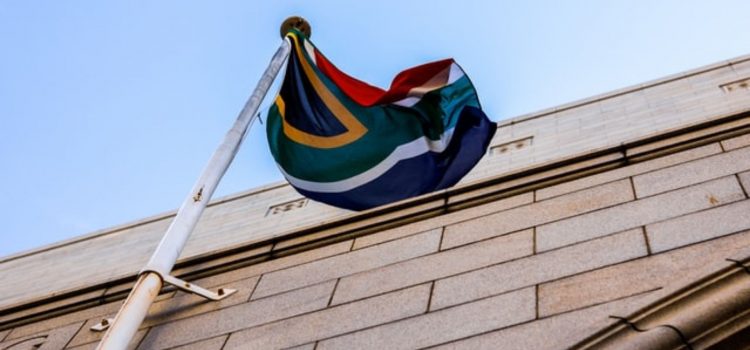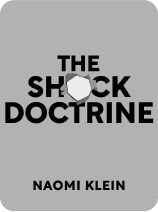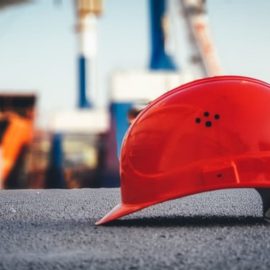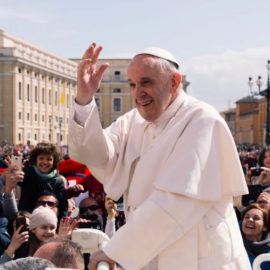

This article is an excerpt from the Shortform book guide to "The Shock Doctrine" by Naomi Klein. Shortform has the world's best summaries and analyses of books you should be reading.
Like this article? Sign up for a free trial here .
How did South Africa become a neoliberal economy? How has neoliberalism affected post-apartheid South Africa?
Post-apartheid South Africa was tricked into embracing neoliberalism. The ANC didn’t see the trap until it was far too late. With their energy focused on winning Parliament, they accepted neoliberal economic compromises that would make realizing their goals impossible.
In this article, you’ll learn about the arrival of neoliberalism in South Africa,
South Africa Goes Neoliberal
After the ANC election victory in 1994, private interests wrapped South Africa in a web of compromises and laws that kept its new government from exercising any real power.
While all eyes were on the political struggle between Mandela and de Klerk (the leader of South Africa’s National Party), the National Party started enforcing neoliberalism in South Africa. Hiding behind the Washington Consensus—which said that only free-market capitalism could create a healthy economy—de Klerk’s government handed over key areas of the economy to “experts” from the World Bank, the IMF, and even the National Party itself.
The people of South Africa didn’t see the trap, thinking that the economic deals were mere technical issues, not worth their attention next to the explosive political deals.
A few of the so-called compromises included:
- The treasury and the central bank would stay in the hands of National Party supporters, and the bank would be protected from any government interference.
- All private property was protected, making the redistribution of land impossible.
- It was now illegal to subsidize certain industries, which meant thousands of jobs would be lost instead of millions created.
- The ANC would take on the debt left behind by the apartheid government, which would eat up much of its national budget in interest payments.
- Any civil servants who wanted to keep their jobs would be allowed to, and those who chose to retire would receive hefty pensions for the rest of their lives.
These were just a few of the many rules and regulations binding the new government. South Africa was supposedly free, but big businesses still controlled every area of the people’s lives. The ANC ruled in name only.
Repeated Shocks Bring the ANC in Line
One thing that Nelson Mandela quickly discovered was that the world had changed since he’d been in prison. In this new, electronic world, corporations could discover and punish any deviation from their rules almost immediately. It was like a shock collar on South Africa, training the ANC in how to follow the rules that they’d unknowingly agreed to.
The first shock came before they even took power, on the day that Mandela was released from prison. The value of the rand, South Africa’s currency, plummeted by 10% as the stock market collapsed and the De Beers diamond company moved its headquarters out of the country.
From then on, any small misstep by Mandela or the ANC resulted in a shock from the market that sent the rand falling again.
The only person in the ANC who seemed to truly understand the game was Mandela’s second-in-command—and shortly thereafter, his successor—Thabo Mbeki. Mbeki had spent many years living in England and studying at the University of Sussex, where he was thoroughly immersed in Thatcher’s neoliberalism. He had a reputation, especially among business leaders and elites, for spreading confidence and cheer even in dire circumstances.
Mbeki eventually convinced Mandela that they needed to spread that kind of confidence to the global market by giving in fully to the Washington Consensus and its free-market economics. As Mbeki put it, the beast had been unleashed and couldn’t be tamed; it could only be fed the endless growth it craved.
Mandela and Mbeki started meeting with Harry Oppenheimer, a former chairman of De Beers, among other massive companies. Though De Beers and Oppenheimer were symbols of the former apartheid rule, he became their guide to the new world of free-market capitalism. He even reviewed, edited, and finally approved the ANC’s new economic program.
Even with their efforts to appease the market, South Africa kept being rocked by painful shocks. Finally, Mbeki determined that what they really needed was to completely break with their past image and goals and rebuild the economy from scratch. In 1996, he unveiled his new plan: A classic Friedman-style shock therapy program that featured increased privatization, decreased government spending, and further deregulation. Just to make sure that the US and Britain got the message, he called himself a “Thatcherite.”
However, it didn’t work. Investors still weren’t biting at the volatile South African market, and all that Mbeki’s shock therapy did was depress the rand even further.
Reverse Reparations
The South African writer Ashwin Desai, who spent time in prison during the struggle for freedom, has noted striking similarities between the behavior of prisoners and the behavior of the ANC. Prisoners who please the wardens will be treated better, so many try their hardest to follow the rules and curry favor with their captors. Desai says that the ANC was doing the same thing, only their captor was the global market.
The ANC outright rejected any measure that might be seen as anti-business. For example, the Truth and Reconciliation Commission—whose purpose was to hear testimony from victims of human rights abuses and grant reparations for their suffering—suggested a one-time, 1% tax on corporations that had profited from apartheid. It was a modest suggestion by any means, but one that Mbeki’s government refused to consider.
To make matters worse, the government is still saddled with the debt burden left over from apartheid, which costs some 30 billion rand in interest each year (about $4.5 billion). That means that any money the government does bring in has to go toward that expense first.
For example, between 1997 and 2004 the ANC sold 18 government-owned farms and raised about $4 billion, half of which went to paying the debt. So, not only was the ANC not living up to the promises of the Freedom Charter, it was doing the exact opposite: selling national land to wealthy investors, and using the money to pay the National Party’s debts.
However, in spite of Nelson Mandela’s own acknowledgment that the national debt was the single greatest obstacle to fulfilling the Freedom Charter, the ANC has refused to default on the loans. While there’s likely a strong case that the debts are odious and don’t need to be paid off, the ANC has been too afraid of further painful market shocks to try.
All of this means that post-apartheid South Africa is languishing under a kind of reverse reparations. The white-owned businesses that profited from apartheid haven’t paid a dime in reparations, while the victims continue to have their own national and personal wealth stripped away to pay their oppressors.
The last straw that got the ANC to abandon even the pretense of redistribution was an unimaginative, yet persuasive argument: Everybody’s doing it. Major banks and governments all over the world were going all-in on deregulation, free trade, and reduced spending. ANC leaders were shuttled to international organizations like the IMF, where they were trained in so-called modern economics. It was an ideological onslaught that the ANC was totally unprepared for, and couldn’t resist.
As for the Freedom Charter, people’s views on it in various parts of the country show its failed promises plainly enough. Rich folks in gated communities and executive boardrooms regard it warmly, as a statement of goodwill and good intentions with no teeth behind it. However, in poor townships, it’s a painful reminder of what they never got.

———End of Preview———
Like what you just read? Read the rest of the world's best book summary and analysis of Naomi Klein's "The Shock Doctrine" at Shortform .
Here's what you'll find in our full The Shock Doctrine summary :
- A study of the history of economic shock therapy
- How economic shock therapy gave rise to the disaster capitalism complex
- How communities are beginning to recover from the destructive shock treatments






